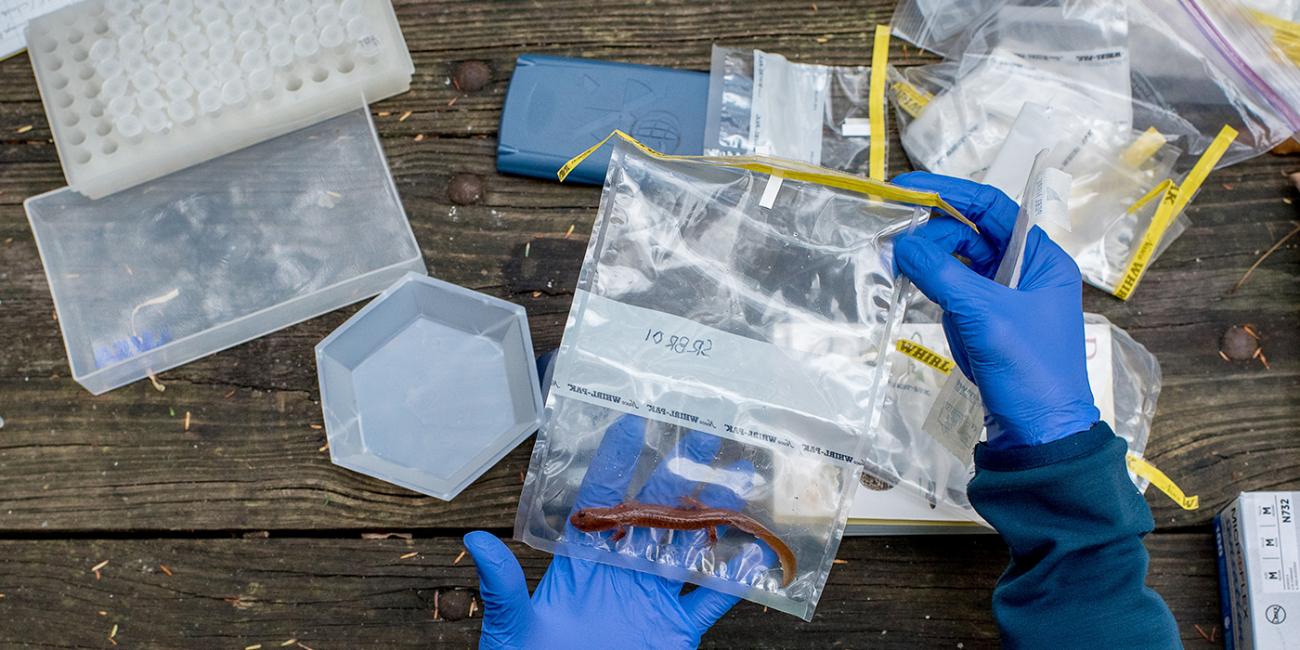Biography
Alexandra DeCandia is a postdoctoral research fellow at the Smithsonian Conservation Biology Institute’s Center for Species Survival and Center for Conservation Genomics. DeCandia’s research employs genetic, epigenetic, and microbiome sequencing techniques for the study and conservation of wildlife. She is particularly interested in how to leverage diverse molecular tools to improve the health and reproductive success of endangered species managed in captivity and the wild.
For her postdoctoral research, DeCandia is primarily focusing on species with extremely limited genetic variation. These include endangered black-footed ferrets (Mustela nigripes) and near threatened Channel Island foxes (Urocyon littoralis), both of which experience disease pressures. Black-footed ferrets exhibit gastrointestinal distress and reduced reproductive success in captivity, and Channel Island foxes exhibit mite-induced ear canal tumors in the Santa Catalina Island subspecies. DeCandia’s research draws upon tools and concepts from molecular ecology, disease ecology, evolutionary biology, and wildlife conservation to better understand and mitigate these pressures.
DeCandia’s current projects include:
- Examining the role of epigenetic variation in male infertility in captive black-footed ferrets
- Linking the host-associated microbiome to gastrointestinal and reproductive health in black-footed ferrets across multiple management settings
- Elucidating the relationship between bacterial infection and mite-induced tumors in Channel Island foxes
In collaboration with multiple government and nonprofit partners, DeCandia aided conservation monitoring of North American species through genetic pedigree reconstruction and trait mapping in Yellowstone wolves (Canis lupus), characterization of microbiome diversity and disease in Santa Catalina Island foxes (Urocyon littoralis catalinae), and identification of population sub-division within northeastern coyotes (Canis latrans), among other projects and study systems.
DeCandia earned her Bachelor of Arts in environmental biology from Columbia University in 2015. She completed her thesis with Dr. George Amato at the Sackler Institute for Comparative Genomics at the American Museum of Natural History, where she developed a molecular method for the noninvasive sex identification of mammalian carnivores. DeCandia earned her Master of Arts and Doctor of Philosophy with Dr. Bridgett vonHoldt at Princeton University in 2017 and 2020, respectively.
